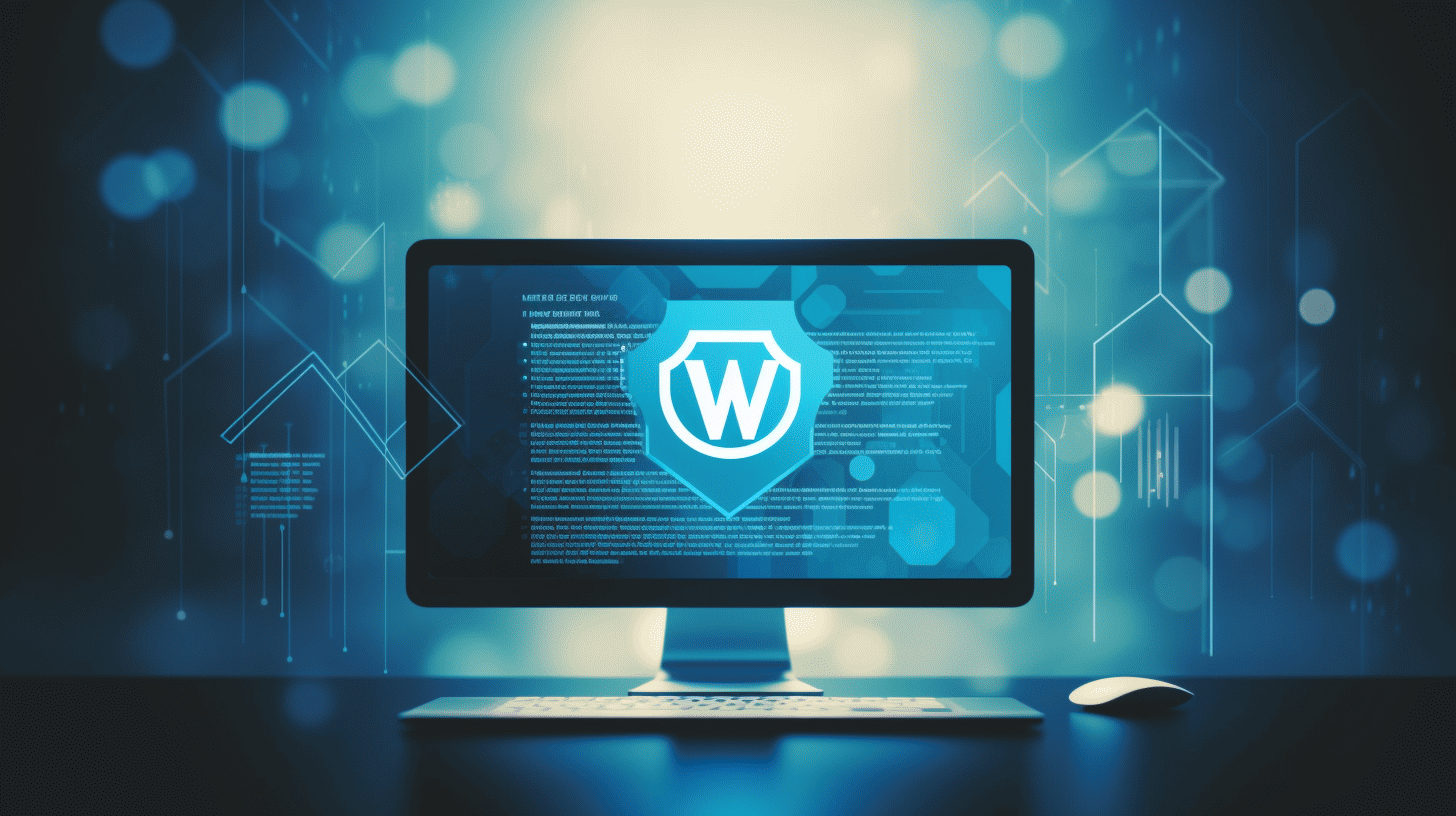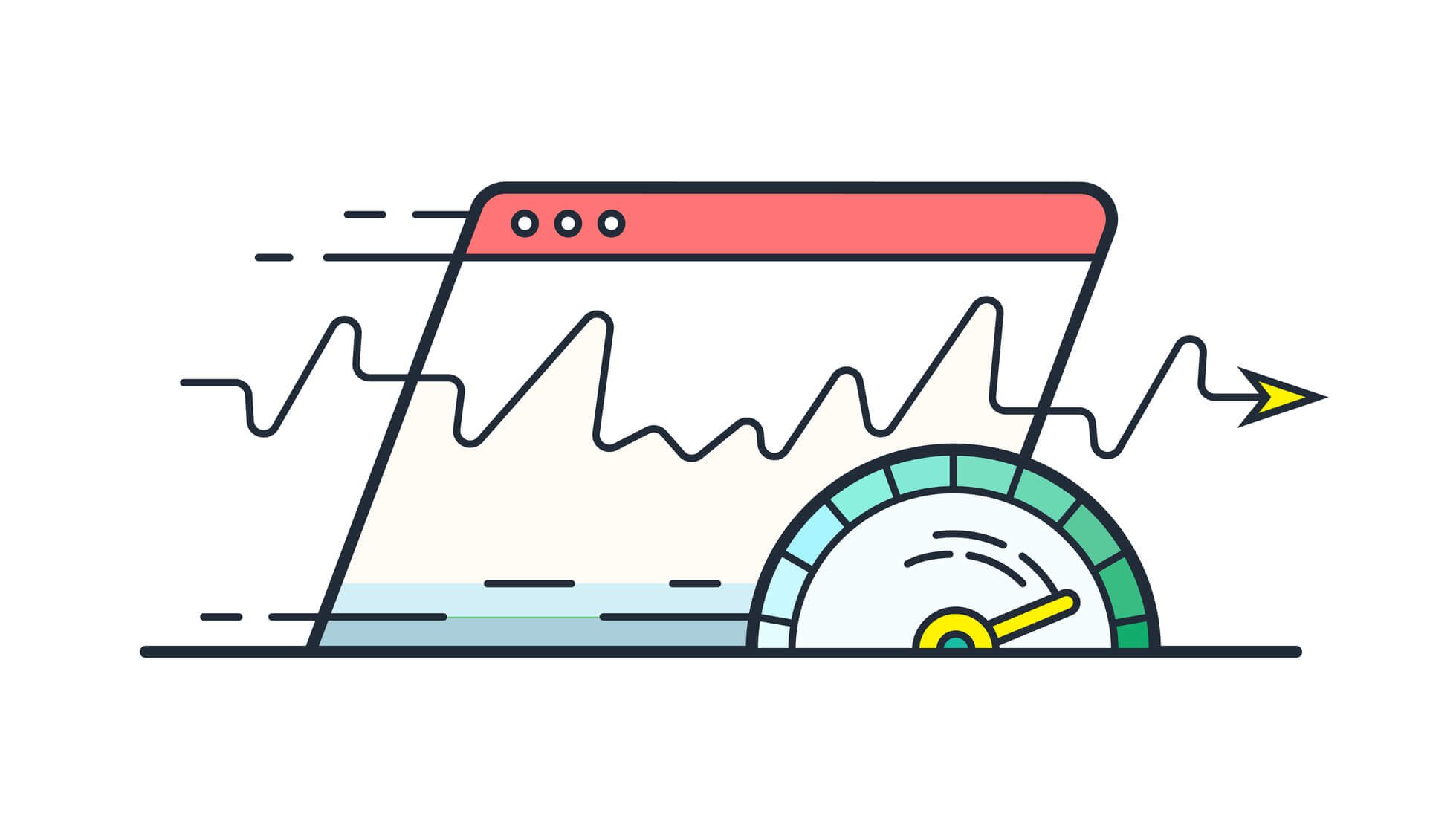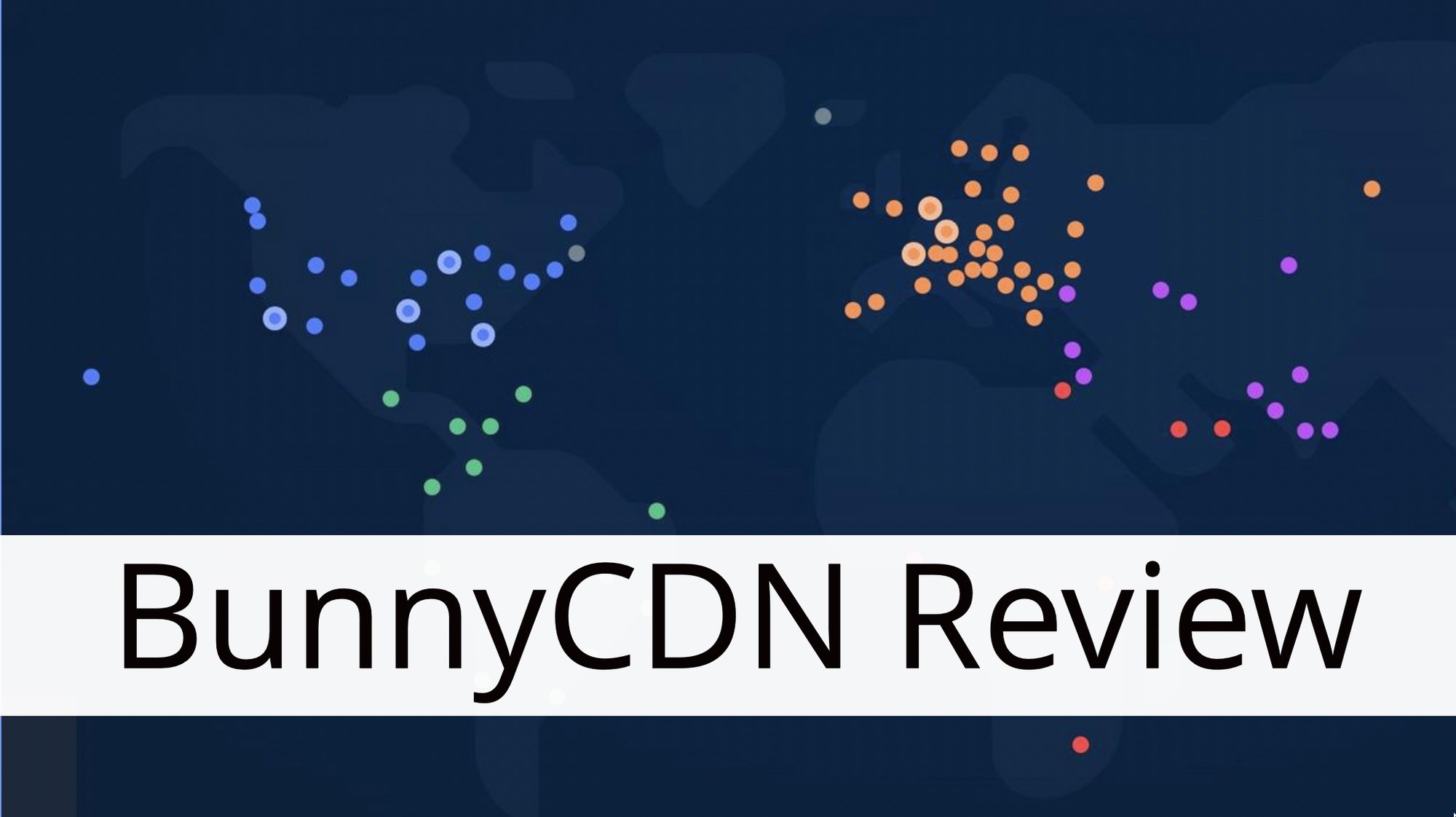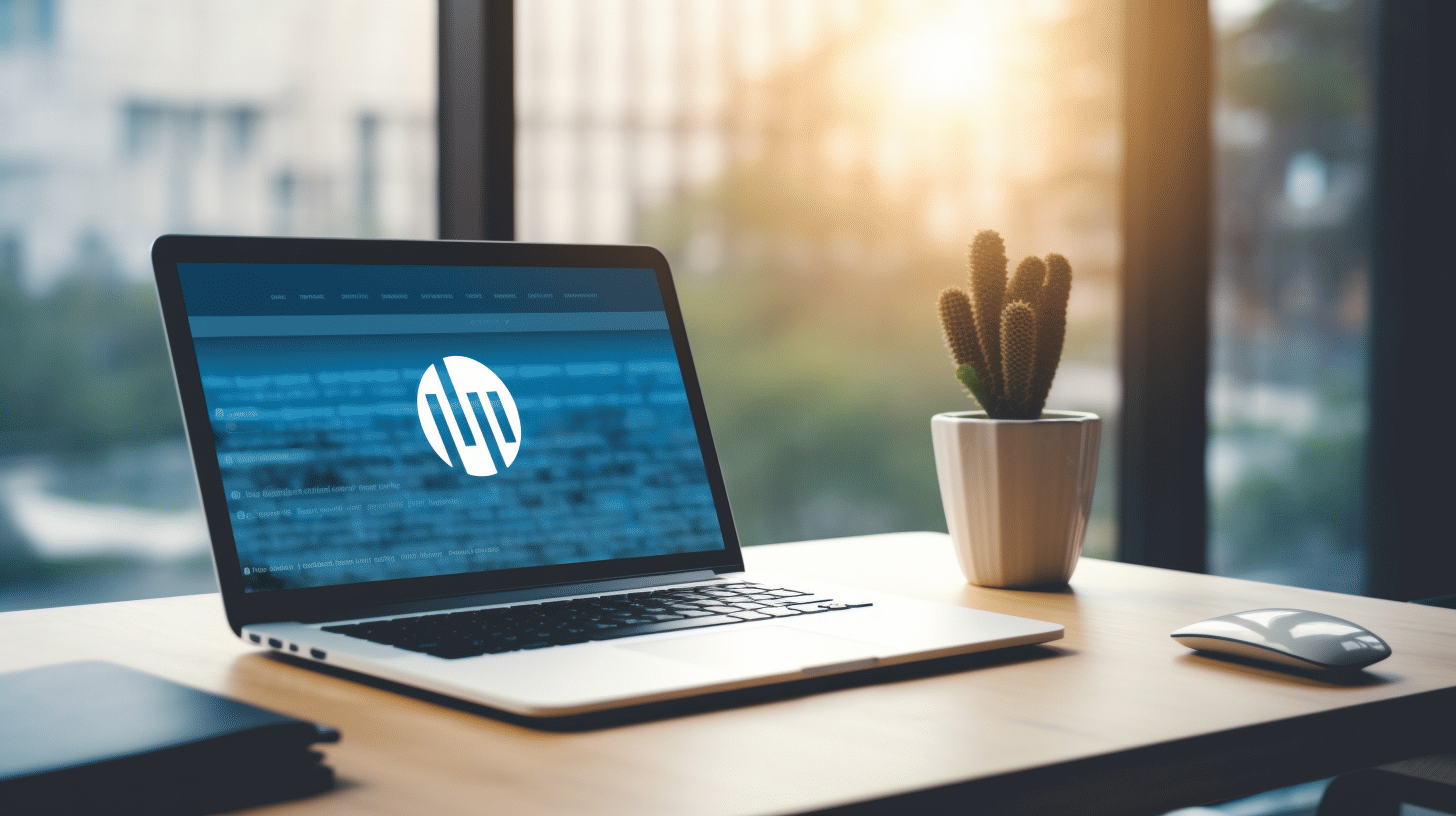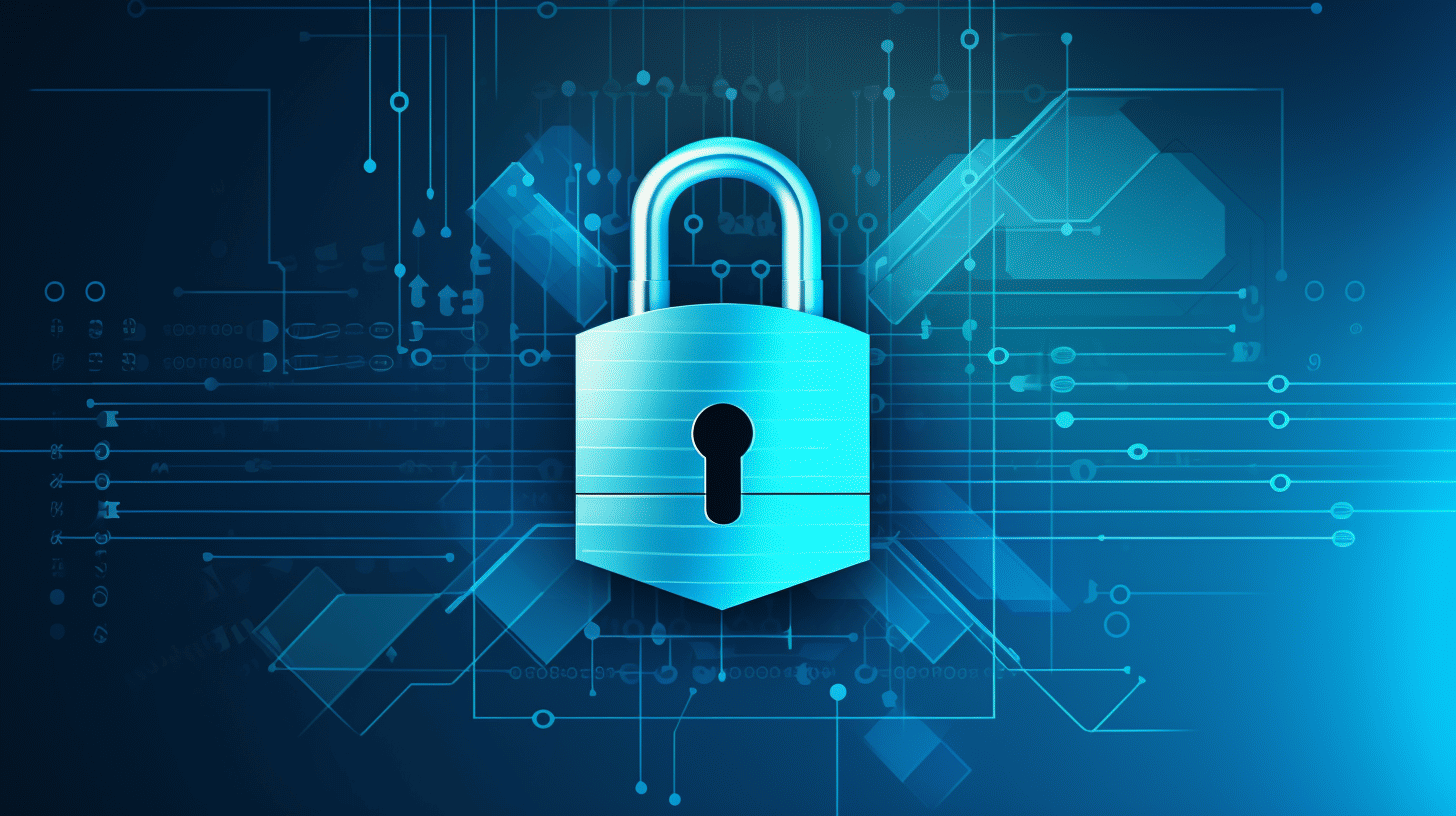In today’s digital age, having a strong online presence is crucial for businesses of all sizes. A well-designed website can help attract visitors, convert them into customers, and ultimately, drive profits. However, with the rise in cyber threats and attacks, ensuring the security of your website is more important than ever. One of the most popular and widely used platforms for website development is WordPress, known for its user-friendly interface and extensive customization options.
However, the popularity of WordPress also makes it a prime target for hackers and malicious actors. It is estimated that approximately 90,000 attacks are carried out on WordPress websites every minute. This staggering number highlights the importance of implementing robust security measures to protect your WordPress site and its valuable data.
But why is WordPress security so important? Let’s dive deeper into the subject and explore the various reasons why enhancing website performance with reliable WordPress security is a must in today’s digital landscape.
Importance of WordPress Security
WordPress has become one of the most popular content management systems (CMS) in the world. With its user-friendly interface and plethora of customizable themes and plugins, it’s no wonder millions of websites are built on WordPress.
However, the widespread popularity of WordPress also makes it an attractive target for cyber threats. Given the sensitive and valuable information stored on websites, ensuring the security of your WordPress site should be at the top of your priority list. Here are three reasons why WordPress security is of utmost importance:
Protection from Cyber Threats
Cyber threats are constantly evolving, and hackers are always finding new ways to exploit vulnerabilities in websites. Without proper security measures in place, your WordPress site could be susceptible to attacks such as:
- Malware Infections: Hackers can inject malicious code into your site, leading to data breaches and unauthorized access.
- Brute Force Attacks: Cybercriminals use automated tools to attempt multiple login combinations in order to gain access to your site.
- DDoS Attacks: Hackers can overload your website with traffic, causing it to become slow or even crash.
- Phishing Attacks: Cybercriminals can create fake login pages to trick users into providing their personal information.
Investing in robust security measures can help protect your WordPress site from these threats, ensuring the safety of your data and your visitors’ information.
Guarantee of Data Integrity
Data integrity is crucial for any website, especially those dealing with user information, financial transactions, or confidential data. WordPress security measures can help ensure the integrity of your data in several ways:
- Secure Login Systems: Implementing strong password requirements and enabling two-factor authentication significantly reduces the risk of unauthorized access.
- Regular Updates: Keeping your WordPress core, themes, and plugins up to date is vital for safeguarding your site from known vulnerabilities.
- Secure Hosting: Choosing a reputable hosting provider that prioritizes security protects your site against security breaches and data loss.
- Secure File Permissions: Setting the correct file and directory permissions ensures that only authorized users and processes can access sensitive data.
By maintaining data integrity, you establish trust with your visitors and customers, as they know their information is being handled securely.
Maintaining User Trust
When visitors come to your website, they place their trust in you to keep their information safe. A site that has been compromised can lead to a loss of trust, damaging your reputation and potentially resulting in financial and legal consequences.
By prioritizing WordPress security, you show your commitment to protecting your users’ sensitive data. This includes:
- Securing Payment Gateways: Implementing secure payment gateways and SSL certificates assures users that their financial transactions are being encrypted and processed securely.
- Protecting Personal Information: Implementing privacy policies, using HTTPS protocols, and following data protection regulations demonstrate your dedication to safeguarding personal information.
- Removing Malicious Code: Regular security audits and malware scans help detect and remove any malicious code that may have been injected into your site.
Maintaining user trust not only strengthens the relationship between you and your visitors but also ensures the long-term success and sustainability of your business.
In conclusion, WordPress security is not something to be taken lightly. Protecting your WordPress site from cyber threats, guaranteeing data integrity, and maintaining user trust are essential for the success of your website or online business. By investing in robust security measures, you can ensure the safety and well-being of your website and its visitors. Don’t wait until it’s too late – prioritize WordPress security today.
Impact of WordPress Security on Website Performance
In today’s digital landscape, website security is of utmost importance. With the increasing number of cyber threats, it is essential for businesses and individuals to prioritize the security of their WordPress websites. But did you know that implementing robust security measures can also have a significant impact on your website’s performance? In this section, we will explore how WordPress security can enhance your website’s performance in terms of faster loading times, optimized resource allocation, and better SEO results.
Faster Loading Times
One of the key factors that contribute to a positive user experience is website loading speed. Users expect websites to load quickly, and if they experience a slow-loading site, they are more likely to abandon it. This not only affects user engagement but also has a detrimental impact on your website’s search engine rankings.
By implementing strong security measures, such as using a reputable WordPress security plugin like Sucuri, you can enhance the performance of your website by reducing the risk of malicious attacks and potential vulnerabilities. A secure website experiences fewer instances of downtime and less server load, leading to faster loading times. This, in turn, improves user satisfaction and increases the chances of higher conversions and engagement.
Optimized Resource Allocation
When your website is under attack or compromised, it can put a strain on your server resources. Malicious activities like brute force attacks or DDoS attacks can consume a significant amount of server processing power and bandwidth, leading to slow website performance for legitimate users.
Implementing robust security measures helps to prevent such attacks from happening in the first place. By securing your WordPress website against common vulnerabilities and taking proactive measures to mitigate risks, you can ensure that your server resources are properly allocated to legitimate visitors, resulting in a smoother and more efficient user experience.
Better SEO Results
Search Engine Optimization (SEO) plays a crucial role in driving organic traffic to your website. Various factors, such as website speed, mobile-friendliness, and security, contribute to your website’s SEO performance. Google, for instance, considers website security as a ranking signal, prioritizing secure websites in search engine results pages (SERPs).
By investing in WordPress security, you not only protect your website and users from potential threats but also improve your chances of achieving better SEO results. Secure websites are more likely to rank higher in search engine results, leading to increased visibility, organic traffic, and ultimately, business growth.
In conclusion, prioritizing WordPress security not only safeguards your website from potential threats but also has a positive impact on its performance. With faster loading times, optimized resource allocation, and better SEO results, a secure website can elevate user experience, increase engagement, and drive organic traffic. With the right security practices in place, you can build a strong foundation for your WordPress website that combines both security and performance.
Effective WordPress Security Measures
When it comes to WordPress security, taking proactive measures is essential to protect your website from potential threats. By implementing some key security practices, you can significantly reduce the risk of malicious attacks and safeguard your valuable data. Let’s explore some effective WordPress security measures that every website owner should consider.
Use of Strong Passwords
One of the most basic yet crucial steps in enhancing WordPress security is using strong passwords. Weak passwords make it easier for hackers to gain unauthorized access to your website. To create a strong password, keep the following tips in mind:
- Use a combination of upper and lowercase letters, numbers, and special characters.
- Avoid using personal information like your name, birthdate, or address.
- Make the password at least 12 characters long.
- Consider using a password manager to generate and store complex passwords securely.
Remember, a strong password acts as the first line of defense against potential intruders.
Regular Updates
Keeping your WordPress website up to date is vital for maintaining its security. Regularly updating your WordPress core, plugins, and themes helps patch security vulnerabilities and ensures that you have the latest security features. Ignoring updates can leave your website vulnerable to attacks.
- Enable automatic updates for your WordPress installation to ensure timely security patches.
- Regularly check for plugin and theme updates and update them as soon as new versions are released.
By staying up to date with the latest security patches, you can stay one step ahead of potential threats.
Installation of Security Plugins
WordPress plugins offer extended functionality, but they can also present security risks if not chosen wisely. Installing security plugins is an excellent way to add an additional layer of protection to your WordPress website. Here are some popular security plugins:
These plugins offer features like malware scanning, firewall protection, login security, and more to enhance your website’s security.
Server Hardening
Hardening your server’s security is another critical aspect of WordPress security. By implementing server-level security measures, you can further enhance the protection of your website. Here are some server hardening practices:
- Utilize a reputable hosting provider that prioritizes security.
- Disable directory browsing to prevent unauthorized access to your website’s files.
- Configure strong file and directory permissions to restrict access to sensitive files.
By securing your server, you create an additional barrier against potential threats.
Disabling File Editing
By default, WordPress allows administrators to edit plugin and theme files directly from the dashboard. However, this feature can pose a security risk if a hacker gains unauthorized access to your admin area. Disabling file editing adds an extra layer of protection by preventing malicious users from modifying critical files.
To disable file editing, add the following line to your wp-config.php file:
define('DISALLOW_FILE_EDIT', true);
This simple step can prevent potential damage caused by unauthorized file changes.
Implementing SSL
Implementing SSL (Secure Sockets Layer) on your website is not just about securing sensitive data; it is also a ranking factor for search engines. SSL encrypts the data transmitted between your website and users, ensuring that it remains confidential and protected from interception.
To implement SSL on your WordPress website, follow these steps:
- Obtain an SSL certificate from a trusted certificate authority.
- Install and activate the SSL certificate on your web server.
- Update the URLs in your WordPress settings to use “https” instead of “http”.
- Ensure that all internal links within your website use “https” as well.
By implementing SSL, you create a secure browsing experience for your visitors and improve your website’s overall security.
Implementing these effective WordPress security measures is crucial to protect your website and safeguard your valuable data. By combining strong passwords, regular updates, security plugins, server hardening, disabling file editing, and implementing SSL, you can minimize the risk of security breaches and maintain a secure WordPress environment. Don’t compromise the security of your website – take steps today to fortify your WordPress security defenses.
Roles and Responsibilities of a WordPress Security Manager
🔒 Introduction 🔒
With the increasing dependence on websites for businesses, the role of a WordPress Security Manager has become crucial in ensuring the safety and security of these platforms. A WordPress Security Manager is responsible for protecting the website from potential vulnerabilities, threats, and attacks. In this article, we will explore the key roles and responsibilities of a WordPress Security Manager, including ongoing threat monitoring, update management, and disaster recovery planning. Let’s dive in!
Ongoing Threat Monitoring
A WordPress Security Manager plays a vital role in monitoring and identifying potential threats that could compromise the security of the website. This involves regularly scanning the website for vulnerabilities both internally and externally. By staying proactive, the Security Manager can identify and address any potential security weaknesses before they can be exploited. Here are some responsibilities within ongoing threat monitoring:
- Conduct regular security audits to identify potential vulnerabilities and loopholes.
- Implement and manage a robust security monitoring system to detect any suspicious activities or intrusions.
- Stay updated with the latest security threats, trends, and industry best practices to ensure a proactive approach to security.
Proper threat monitoring not only helps in safeguarding the website but also ensures that customer data and confidential information remain protected.
Update Management
Keeping the WordPress platform and its plugins up to date is paramount for maintaining a secure website. A WordPress Security Manager is responsible for managing updates effectively and efficiently. This includes:
- Regularly checking for updates to the WordPress core, themes, and plugins.
- Applying updates promptly to address any security vulnerabilities that may arise.
- Testing updates in a controlled environment before implementing them on the live website.
- Ensuring that all updates are compatible with the website’s existing functionalities and do not disrupt its performance.
By managing updates effectively, a WordPress Security Manager minimizes the risk of security breaches caused by outdated software.
Disaster Recovery Planning
In case of a security incident or a website outage, a WordPress Security Manager plays a crucial role in disaster recovery planning. This involves creating and implementing strategies to minimize the impact of such incidents and restore the website’s functionality as quickly as possible. Here are some key responsibilities within disaster recovery planning:
- Regularly backing up the website and ensuring the backups are stored securely.
- Developing a comprehensive incident response plan to address security breaches or other emergencies.
- Conducting regular drills and tests to assess the effectiveness and efficiency of the disaster recovery plan.
- Collaborating with relevant stakeholders, such as IT teams or external security providers, to ensure a coordinated response.
By being prepared for worst-case scenarios, a WordPress Security Manager can minimize downtime and swiftly restore the website’s operations.
🔒 Conclusion 🔒
A WordPress Security Manager plays a pivotal role in safeguarding websites from cyber threats. From ongoing threat monitoring to update management and disaster recovery planning, their responsibilities are diverse and crucial in maintaining the security and integrity of the WordPress platform. By staying vigilant, proactive, and up to date with the latest security practices, a WordPress Security Manager helps ensure that businesses can operate online smoothly and securely.
Conclusion
In conclusion, enhancing website performance with reliable WordPress security is crucial for any online business. By implementing effective security measures, such as using strong passwords, regularly updating WordPress, installing security plugins, and implementing SSL, website owners can protect their websites from cyber threats, guarantee data integrity, and maintain user trust.
The impact of WordPress security on website performance is significant. It leads to faster loading times, optimized resource allocation, and better SEO results, ultimately improving the overall user experience and driving more organic traffic to the website.
Having a dedicated WordPress security manager is essential for monitoring ongoing threats, managing updates, and planning disaster recovery. This role ensures that the website remains secure, up-to-date, and protected against potential vulnerabilities.
To simplify the process of managing WordPress security and ensuring optimal website performance, companies like Managed-WP™ offer premium managed WordPress cloud hosting services. With their expert 24/7/365 problem-solving support and infrastructure simplification, Managed-WP™ enables website owners to focus on their digital experiences and business growth.
In the ever-evolving landscape of online threats, investing in reliable WordPress security is not an option but a necessity. By prioritizing website security, businesses can safeguard their online presence and provide a secure and trustworthy environment for their users.
To learn more about how Managed-WP™ can help enhance your website’s security and performance, visit managed-wp.com. Take control of your WordPress environment and enjoy the peace of mind that comes with a managed solution. 🚀🔒
Frequently Asked Questions
- What are some reliable WordPress security plugins?
Some reliable WordPress security plugins are: 1. Sucuri Security, 2. Wordfence Security, 3. iThemes Security, 4. All In One WP Security & Firewall, and 5. BulletProof Security.
- Why is website security important for WordPress?
Website security is crucial for WordPress because it protects your website from hackers, malware, and other online threats. It ensures the safety of your data, maintains website performance, and safeguards your reputation.
- What security measures can I take to enhance website performance in WordPress?
To enhance website performance in WordPress, you can take the following security measures: Keep WordPress and plugins/themes updated, use strong passwords, limit login attempts, install an SSL certificate, regularly backup your website, and use a reliable security plugin.
- How do WordPress security plugins help enhance website performance?
WordPress security plugins help enhance website performance by preventing hacking attempts, blocking malicious traffic, scanning for malware, optimizing website speed, offering firewall protection, and providing regular security audits and notifications.
- Can I rely solely on WordPress security plugins for website protection?
While WordPress security plugins are important for website protection, they should be complemented with other security measures such as using strong passwords, regularly updating WordPress and themes/plugins, implementing file permission restrictions, and ensuring secure hosting environments.











